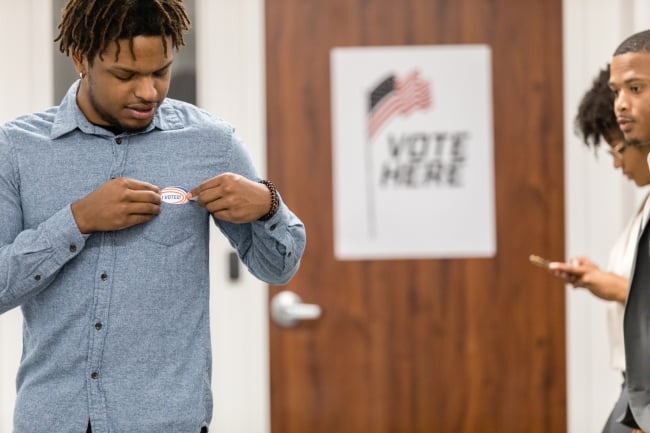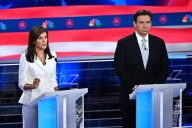You have /5 articles left.
Sign up for a free account or log in.

Colleges and universities can encourage students to participate in local and federal elections, supporting student success in their lives after graduation and encouraging civic engagement.
SDI Productions/E+/Getty Images Plus
College students have been participating in elections for decades, thanks to the 26th Amendment, ratified in 1971, which lowered the U.S. voting age to 18 nationwide. In recent years, the population of student voters has surged. The 2020 election saw an 11-percentage-point increase in the number of young voters (ages 18 to 29), growing to 50 percent, according to Tufts University’s Center for Information and Research on Civic Learning and Engagement.
Last week, the American Council on Education published a brief on student voting and college political campaign activities, offering some best practices and guidance for colleges and universities regarding their role in student voting.
Dos: Higher education leaders can support student voting in the following ways:
- Demystify and simplify the voting process. Officials should connect students to user-friendly websites with information about voter eligibility, deadlines, where and how to vote. North Carolina A&T’s Aggies Vote initiative, for example, provides a detailed breakdown of the above information, answers to frequently asked questions and more.
- Provide updated information. Common barriers to student voting relate to student identification and residency requirements, as well as confusion over absentee and mail-in ballots.
- Allocate resources to voting. Colleges should be aware of the potential barriers to voting opportunities and seek to provide solutions, like providing transportation to polling locations or stamps for mail-in ballots. American University in Washington, D.C., has hosted an annual absentee ballot day at the library since 2018, providing postage and certified notaries public to ensure students can participate in their local elections, according to Voter Friendly Campus.
- Create time for students to vote. Institutions are allowed to rearrange the academic calendar so campus community members can participate in the election, with some terms and conditions.
- Support student groups’ rights. Student groups can participate in partisan political activity, including hosting candidate appearances on campuses. Student newspapers are also allowed to publish editorial opinions on political and legislative matters.
Don’ts: Federal law is clear that institutions of higher education are not permitted to engage in partisan activity, including but not limited to promoting candidate ratings, lobbying for a candidate-specific cause, sharing partisan voter registration links or inequitably providing candidates with a platform or forum to campaign.
Professors are also not permitted to support a candidate in the classroom, such as by wearing a campaign button while teaching or having a home office background with posters for a candidate or party.
Get more content like this directly to your inbox every weekday morning. Subscribe here.






.jpg?itok=QW-IeiPc)
